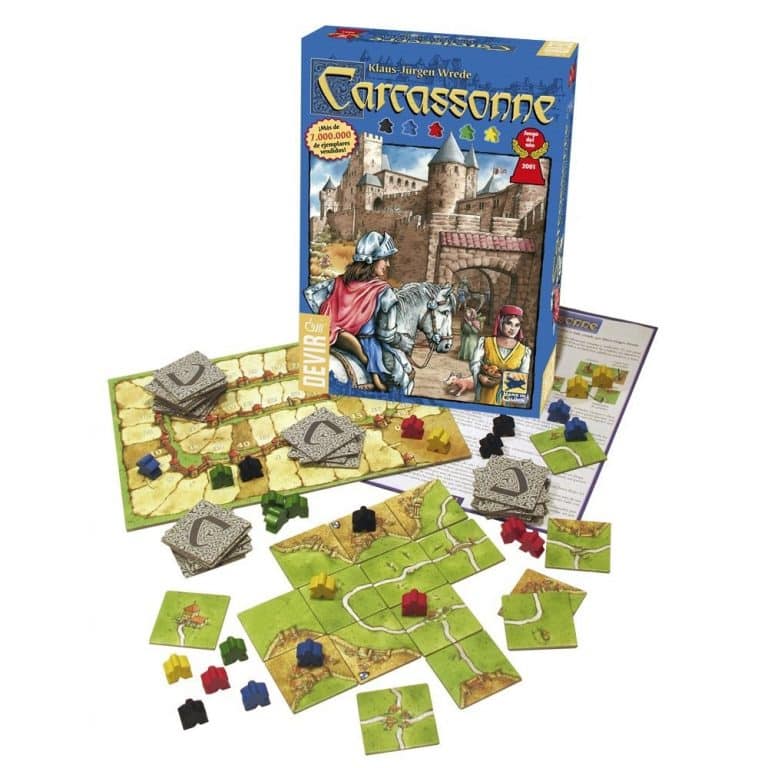

How about on Australian English#Diminutives in the -o section - you could add something like: This construction is even applied to ]s, as in ''meepo'' (]) Percy Snoodle 10:58, 24 April 2006 (UTC) Reply I have checked with my club members and we are happy with the note above - but alas there is no article on meeples to link it to. but probably not in the main Carc article Percy Snoodle 12:16, 20 April 2006 (UTC) Reply

I think it would be an appropriate note in an article on Meeples, or (perhaps) Australian slang. I've removed it again, more because it makes the parenthesised section too long than for reasons of non-notability. Even for just those Aussies who love and play the game you could leave it in.I really don't think that this will affect others who read this entry. I could create a a webpage for Australia, but it seems simpler to have it in Wikipedia. I am not sure how it started but it is common. It is a colloquialism and is important to those of us who play in Australia.

If it's a colloquialism, it seems a very minor one. Have removed "(or meepo in Australia)" for the second time, because Google returns no results for meepo+carcassonne, and I've never heard this while playing in Australia. I can confirm that it is 4 points, per completed city, in my 3rd edition rules -Preceding unsigned comment added by 203.109.193.137 ( talk) 03:47, 24 July 2008 (UTC) Reply T/ C 18:44, 2 January 2008 (UTC) Reply I think the point this user is making is that it is 4 points per farm not 3 points as stated in the article.The 3rd edition rules are as presented in the table here (which also count partially completed roads and cloisters at the end of the game), and they're the ones that you should use. Any ideas? aechris 12:36, 2 January 2008 (EST) -Preceding unsigned comment added by 206.248.152.35 ( talk) I'm not clear on what's confusing you. I just purchased the game in Canada and the rules not only seem to follow the 3rd Edition rules set here, but also adds modifications to the end game like counting partially completed roads and cloisters and farm-touched castles as 4 points each. Matt Lodder 21:17, 24 December 2005 (UTC) Reply I imagine the "changes" would indeed be confusing to anyone with the RG English-language version only. I did some tidying up of the layout of that section, and added a clarification as to which version is which. Therefore, I feel it is important to mention the different editions of rules even though they don't appear in the English language version. I was introduced to the third edition rules (albeit with four points per completed city and without the four point two-tile city) when I started and didn't realize the difference until the board gaming group at work I play with sat down and actually read the rules rather than take my word for it. My policy is to not make changes (I WILL make corrections when mistakes were made in the original rules) when I simply reprint games. Since most of my customers are unaware of German rule changes, I felt it was best to keep the original as having two versions only adds confusion (as seem by those of you who ARE aware of the German rules). Therefore, I asked Hans im Glück if I could keep mine and was told they were happy with both, but were changing theirs as they felt the new rules were easier to understand. When I first learned of the changes proposed by Hans im Glück, I tested them and found I (and my test groups) preferred the original. There's a statement by Jay Tummelson on the link I gave to a page explaining the three editions of scoring stating that they prefer the first edition scoring and asked Hans im Glück for permission, which was granted. Rio Grande Games has chosen not to implement the latter editions. Basically, Hans im Glück has released three editions of the game, each with slightly different scoring rules, primarily in the area of farmers.

I have tried my best to state things as I understand them and in a clear manner.


 0 kommentar(er)
0 kommentar(er)
